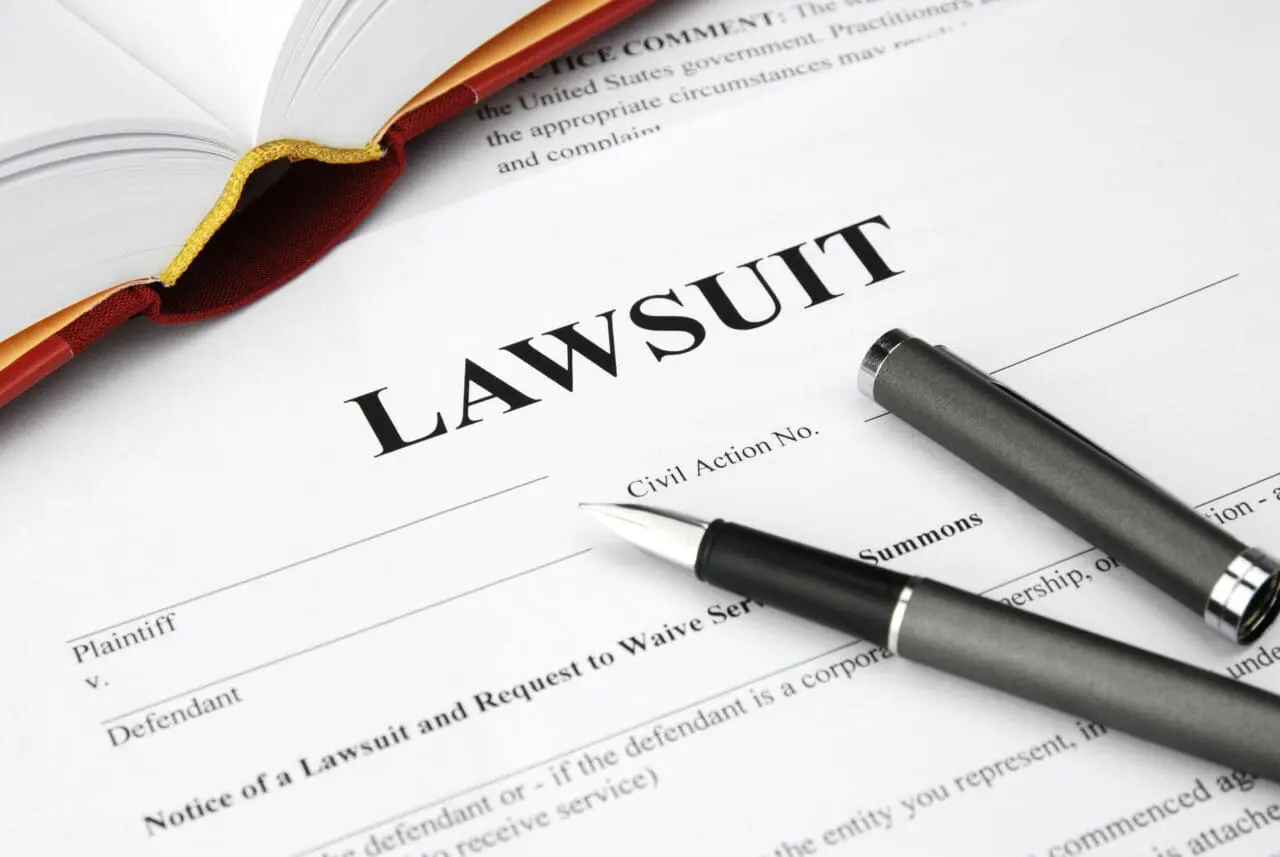

The recent class action lawsuit involving Apple’s massive £385m payout to Norfolk Council over false reassurances regarding iPhone demand in China marks a pivotal moment for investors, Apple customers, and the technology market at large. This landmark case underscores the critical importance of transparency and accountability in corporate communications. For investors, it serves as a cautionary tale about the inherent risks of market speculation based on company statements. Meanwhile, iPhone users and the technology sector are put on notice that legal and financial repercussions for misleading information, such as battery life claims, can be substantial. This event may prompt a reevaluation of how investment risks are assessed and the strategies businesses employ to notify users and UK consumers about Apple products and software updates while maintaining transparency with their stakeholders.
In a surprising twist, the tech giant Apple Inc. found itself in the middle of a significant legal battle that ended in a £385 million settlement with Norfolk County Council. The lawsuit arose from allegations of a cover-up by Apple concerning the demand for older iPhones models in China, a key market for the company. In late 2018, Apple adjusted its quarterly revenue forecast, leading to a substantial drop in its share price. Investors contended they had been misled by overly optimistic statements from Apple’s CEO, causing them to endure severe financial repercussions. Apple agreed to the settlement, highlighting the consequences of corporate miscommunication and emphasising the importance of transparency and accountability in safeguarding investor interests and maintaining market trust. This case also underscores the significance of notifying users about software updates, especially for UK consumers and iPhone users, to uphold trust and prevent legal disputes that could end up in federal court.
The Apple incident sheds light on the crucial role of honesty and clarity in corporate communications. Companies, regardless of their size or industry, can glean valuable lessons from Apple’s missteps. Transparent communication is not solely a legal or ethical duty; it’s a strategic asset that nurtures trust, loyalty, and stability among investors, customers, and iPhone owners alike. For businesses aiming to steer clear of similar pitfalls, the Apple case underscores the significance of offering precise and timely information, especially when it involves matters that could significantly impact investor decisions or market perceptions. This event is a potent reminder that in the digital age, where information travels instantaneously, maintaining integrity in communications can avert costly legal and reputational repercussions. Apple introduced music streaming apps and the Competition Appeal Tribunal. Moreover, the tech giant has begun making payments for software updates to older iPhones, as confirmed by the claims administrator.
In today’s fast-paced business environment, the importance of strategic marketing and transparent communication cannot be overstated. MKLINK, with decades of experience in helping businesses achieve their operational and marketing goals, emphasises the significance of honesty and clarity in corporate communications. Drawing lessons from the recent Apple class action lawsuit involving iPhone users, attorneys fees have become a focal point. It’s clear that businesses must prioritise transparency to foster trust and loyalty among Apple customers, including UK customers. Additionally, in an era where digital marketing strategies can make or break a business, MKLINK advocates for the utilisation of strategic marketing techniques to not only drive customer upgrades and avoid the pitfalls that befell Apple and led to legal action, but also to secure a competitive edge in the market. Their approach underscores the importance of leveraging both traditional insights and modern tactics, including software updates, to drive business success in an increasingly complex world.
In the aftermath of Apple’s high-profile lawsuit and settlement, the paramount importance of incorporating transparent and strategic communication within marketing and operational frameworks has never been clearer. Claims administrators must now focus on the impact on iPhone models, especially older ones, to drive customer upgrades. At MKLINK, we provide an arsenal of strategic marketing and operational resources tailored to empower businesses to not only sidestep the pitfalls that led to Apple’s financial and reputational losses but also to capitalise on the evolving marketplace dynamics. Leveraging our deep understanding of market trends and stakeholder expectations, we guide our clients towards adopting transparency and strategic foresight in their communications. This approach not only bolsters trust among existing clients but also attracts new ones, securing higher recurring monthly management fees and ensuring sustained business growth. With our expertise and support, businesses can transform challenges into opportunities for strengthening stakeholder relationships and achieving long-term success.
Apple’s unexpected adjustment of its quarterly revenue forecast in late 2018, which led to a significant tumble in its share price, has become a notorious example of how vital accurate and transparent communication is to investor confidence. The controversy stems from the tech giant’s over-optimistic statements regarding iPhone demand in China, failing to account for the market’s slowing growth and the challenges posed by trade tensions. This misstep not only resulted in a substantial financial loss for the company but also sparked a £385m lawsuit from Norfolk Council, representing misled investors. The case underlines the importance of corporations maintaining transparency in their forecasts and communications, as misleading information can have far-reaching consequences for both the company and its stakeholders. Apple agreed to provide software updates to older iPhone models to address concerns about battery life, aiming to restore trust among Apple customers.
In a landmark legal victory, Norfolk County Council emerged triumphant in its lawsuit against Apple Inc., securing a proposed settlement of a hefty £385 million. The council’s litigation was grounded on claims that Apple had obfuscated the true demand for older iPhone models in China, misleading investors and leading to significant financial losses. This class action lawsuit threw into sharp relief the consequences of corporate obfuscation and the necessity for transparent communication with stakeholders. The settlement agreement not only represents a significant financial win for the council but also sets a precedent for how investor grievances are addressed by multinational corporations. This outcome underscores the increasing importance investors place on transparency and truthfulness from companies in which they invest, highlighting a shift towards more accountable corporate behaviour.
In the realm of investment, knowledge is power. The Apple controversy starkly illustrates how sudden shifts in corporate forecasts and the resulting media coverage can drastically affect market perceptions and investor confidence. Being informed about such events is crucial for making sound investment decisions. It’s not just about tracking stock prices or financial reports; understanding the broader context, including corporate governance issues, legal challenges, and market trends, can provide investors with a more comprehensive view of their investment landscape. This vigilance enables investors to react swiftly to protect their assets and, when necessary, to adjust their investment strategies to mitigate potential losses and capitalise on emerging opportunities. iPhone owners, claims administrators, various iPhone models, class action lawsuit, and proposed settlement should be considered in this scenario.
In one of the most closely watched legal confrontations in recent tech history, Apple Inc. faced a formidable opponent in Norfolk County Council, culminating in a highly publicised settlement of £385 million. The lawsuit revolved around allegations that Apple product had deliberately obscured the true state of iPhone demand in China, misleading investors and causing notable financial damages due to battery replacements. This landmark case not only highlighted the critical importance of corporate transparency but also underscored the evolving expectations of UK customers in the digital age. For Apple, a company renowned for its market influence and technological innovations, the settlement marked a significant moment of accountability and brought to the forefront the intricate balance between strategic disclosures and legal obligations, including software update. This settlement not only served as a wake-up call to the tech industry but also accentuated the role of vigilant legal systems in safeguarding investor interests against corporate miscommunications, iPhone throttling, and attorney’s fees.

This website uses cookies to improve your experience. Choose what you're happy with.
Required for the site to function and can't be switched off.
Help us improve the website. Turn on if you agree.
Used for ads and personalisation. Turn on if you agree.
This website uses cookies to improve your experience. Choose what you're happy with.
Required for the site to function and can't be switched off.
Help us improve the website. Turn on if you agree.
Used for ads and personalisation. Turn on if you agree.